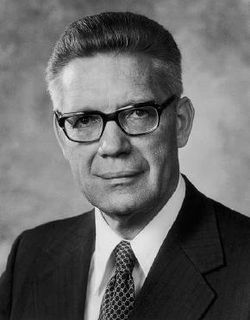A Quote by Robert Penn Warren
The lack of a sense of history is the damnation of the modern world.
Related Quotes
Muslims naturally saw Christendom as their arch rival. One point that is really important to bear in mind, particularly in addressing an American audience, and that is that the Islamic world has a very strong sense of history. In the Muslim world, history is important and their knowledge of history is not always accurate but is very detailed. There is a strong historical sense in the Muslim world, a feeling for the history of Islam from the time of the Prophet until the present day.
Contrary to received wisdom, the British are not an insular people in the conventional sense - far from it. For most of their early modern and modern history, they have had more contact with more parts of the world than almost any other nation - it is just that this contact has regularly taken the form of aggressive military and commercial enterprise.
I have great love and respect for Russian history and culture. But the world is changing and Russia is too. Russia is part of the modern world, not the world of the past but the modern world. And I believe it has an even greater future than some other countries that can't take care of their young people, of the new generations, of their children, and believe that they can just let things slide.
The true makes of history are the spiritual men whom the world knew not, the unregarded agents of the creative action of the Spirit. The supreme instance of this-the key to the Christian understanding of history-is to be found in the Incarnation- the presence of the maker of the world in the world unknown to the world. ... The Incarnation is itself in a sense the divine fruit of history-of the fullness of time-and it finds its extension and completion in the historic life of the Church.
A lack of affiliation may mean a lack of accountability, and forming a sense of commitment can be hard without a sense of community. Displacement can encourage the wrong kinds of distance, and if the nationalism we see sparking up around the globe arises from too narrow and fixed a sense of loyalty, the internationalism that's coming to birth may reflect too roaming and undefined a sense of belonging.
But in fact as knowledge expands globally it is being lost locally. This is the paramount truth of the modern history of rural places everywhere in the world. And it is the gravest problem of land use: Modern humans typically are using places whose nature they have never known and whose history they have forgotten; thus ignorant, they almost necessarily abuse what they use.
I deal with students every day - from China, Germany, the United States, Hong Kong and Taiwan. And I've noticed that the Chinese students are the least trained in having a sense of aesthetics. They lack any ability to sense what is beautiful or what is proper. They can be learned and skillful, but they lack the ability to make their own free judgment. It is really sad to see young adults of 20, 25 years who were never taught to make their own decisions. People who can't do that don't get a sense of responsibility. And if you lack a sense of responsibility, you push the blame onto the system.
The most profound question is, "What would I risk dying for?" The natural answer is "for my family." But for most of history, we didn't live in families. We lived in small communities that gave us our sense of safety and place in the world, so the natural answer would be "for my people." The blessing and the tragedy of modern life is that we don't need our community to survive anymore. When we lose that idea, we lose a sense of who we are.







































